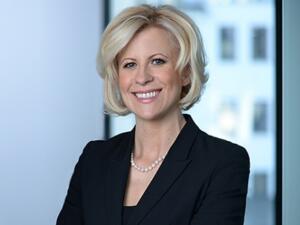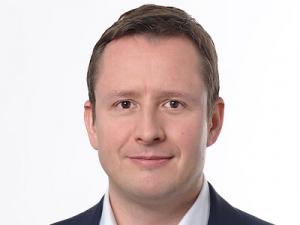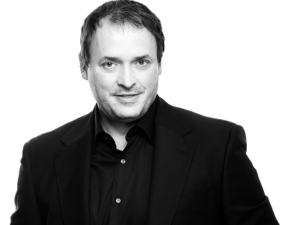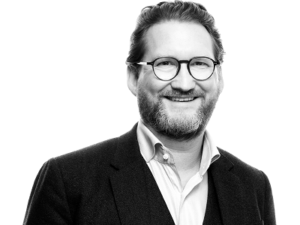Showdown in Munich: Federal Patent Court revokes Xarelto patent
Turn of events for Bayer's Xarelto in Germany: After being granted PIs in both instances at Munich's civil courts, the Federal Patent Court has now revoked a crucial patent for the blockbuster drug. This could clear the way for generic rivaroxaban products in Germany.
30 July 2025 by Konstanze Richter
The patent court’s ruling deviates from its qualified opinion given in 2024, where the judges had assumed the patent’s validity. The Federal Patent Court now revoked EP 1 845 961 due to lack of inventive step (case ID: 3Ni 11/22).
The patent-in-suit EP 961 has “Swiss-form” claims covering the use of rivaroxaban to manufacture a medication for treating thromboembolic disorders. The claims cover a rapid-release tablet that patients can take once daily for at least five days.
Set to expire on 19 January 2026, the patent secures market exclusivity for Xarelto. EP 961 is particularly important as the basic patent EP 1 261 606 expired in December 2020, with a subsequent SPC protecting Xarelto until 1 April 2024.
According to JUVE Patent information, a clinical study conducted by Bayer prior to the priority date of the patent, the so-called “Einstein DVT study”, played a crucial role in the court’s decision. As part of this study, Bayer had provided patients with information letters that included details on the dosage of the drug. This, the court reasoned, constitutes prior art. In its preliminary opinion issued January 2024, this study had not yet been taken into account.
Given the blockbuster drug’s high value, the patent court raised the value in dispute from €10 million to €30 million, the maximum amount set in Germany.
Fierce cross-border battle
For years, Bayer has fought to prevent various generic drug manufacturers from launching their rivaroxaban products in several European markets, with mixed results. In Germany, the pharmaceutical originator has so far successfully defended Xarelto through preliminary injunctions.
In February, the Higher Regional Court Munich upheld a PI against generic manufacturers previously granted by the first instance court. This continued to bar Stada and Aliud Pharma from entering the German market. Yesterday’s Federal Patent Court decision will very likely result in the PIs against generic drug manufacturers being lifted and generic versions of Xarelto being launched on the German market. However, Bayer is likely to appeal to the Federal Court of Justice.
Altogether, ten claimants initially filed nullity suits at the Federal Patent Court. However, Accord has since withdrawn its suit after reaching an agreement with Bayer.
Win some, lose some
Bayer has successfully defended Xarelto in many European jurisdictions, primarily against Sandoz and sometimes other generic companies. In 2021, the EPO Boards of Appeal reinstated the dosing patent EP 961, overturning a previous decision by the Opposition Division to revoke it.
The District Court The Hague dismissed nullity suits filed by Sandoz and Teva in the Netherlands. Bayer also succeeded in Austria, with the Higher Regional Court Vienna confirming a first instance PI against Stada on 30 January (case ID: 33 R 119/24y). Courts in Sweden, Lithuania, Belgium, Croatia, Czechia, Portugal and Slovakia have also upheld the patent.
However, Bayer has faced setbacks elsewhere. In Norway for example, the patent was revoked on appeal yesterday due to lack of inventive step.
The Paris Court of Appeal declared the patent invalid in early July (case ID: 24/07962), confirming the first-instance decision.
Two weeks earlier, on 25 June, Judge Rory Mulcahy of the High Court in Dublin also found the patent invalid in the first instance (case ID: 2024/2369).
In Switzerland, the Federal Patent Court in Zurich revoked the Swiss part of EP 961 at Sandoz’s request in January. The Swiss Federal Court of Appeal rejected an appeal against this decision.
Last summer, the UK Court of Appeal upheld the High Court’s decision declaring the patent invalid, and the Supreme Court refused leave to appeal.
The patent has also been held invalid in two non-European countries, Australia and South Africa, with the Australian decision now final.
Overall, the patent faces challenges in 24 jurisdictions. Further proceedings are pending in Turkey, Greece, Estonia, Hungary, Poland, Bulgaria, Latvia, Spain, Romania, Finland, Italy, Denmark, Austria and Greece.
Large contingent of lawyers
As in parallel disputes concerning infringement against generic manufacturers and regulatory issues against the IFA, Bayer relied on the experienced team from Cohausz & Florack and A&O Shearman. Pharma experts and patent attorneys Natalie Kirchhofer and Arwed Burrichter, partners at Düsseldorf-based IP boutique Cohausz & Florack, led the nullity proceedings. They have managed the patents since the company first filed them and have also coordinated the technical aspects of the infringement proceedings.
- Natalie Kirchhofer
- Arwed Burrichter
- Stephan Neuhaus
Litigator Stephan Neuhaus and patent attorney Caroline Bley of A&O Shearman assisted, leading the infringement proceedings and the dispute against IFA. The firm is also handling proceedings in France and the UK, with a team led by Paris-based partners Laëtitia Bénard and Charles Tuffreau, and London partner Rafi Allos. For the Dutch proceedings, Bayer brought in a team from Simmons & Simmons led by Bas Berghuis van Woortman, who recently announced his move to Taylor Wessing in 2025.
The advisors worked closely with Bayer’s in-house team, led by Stephan Beyreuther and Elisabeth Haselhorst of the IP litigation team. At the beginning of the month, Dorian Immler took over as head of Bayer IP and is now responsible for all IP activities, including litigation, contract work and M&A.
Ten minus one
Initially, ten plaintiffs challenged the German part of the dosage patent before the Federal Patent Court. They all work with their own advisors, some of whom they have trusted for many years.
However, Accord withdrew its nullity action after reaching an agreement with Bayer. Until then, litigator Daniel Hoppe of Bonabry, together with patent attorney Christian Hollatz of Ter Meer Steinmeister, had represented the generics manufacturer.
- Daniel Hoppe
- Konstantin Schallmoser
- Michael Best
The IP litigation boutique Bonabry, founded at the beginning of the year by several Preu Bohlig lawyers, was also active on behalf of Polpharma and Abdi Pharma. The latter had filed a lawsuit with three of its companies. Paris-based partner Konstantin Schallmoser represented Polpharma, while Hamburg-based partner Hoppe advised Abdi Pharma. Both worked with patent attorney Alexander Wittkopp from Hamm & Wittkopp, who was in the lead and also led the nullity action for Genepharm.
Patent attorney Michael Best from Kraus & Lederer acted for the German Sandoz subsidiary Hexal and Krka. In France, Sandoz relied on Schertenleib, in the UK on Pinsent Masons and in the Dutch proceedings Brinkhof acted for the generic company.
- Jan Phillip Rektorschek
- Annika Lückemann
Stada appointed patent attorney Thomas Kernebeck and a team from Taylor Wessing. Munich-based partner Jan Phillip Rektorschek is also leading the parallel infringement proceedings for the client.
Teva subsidiary Ratiopharm once again relied on a mixed team from Bird & Bird with litigators Oliver Jüngst and Annika Lückemann and patent attorney Anne Halbach.
This article was updated after publication on 30.7.25 to include information regarding the decision of the Court of Appeal in Norway.







